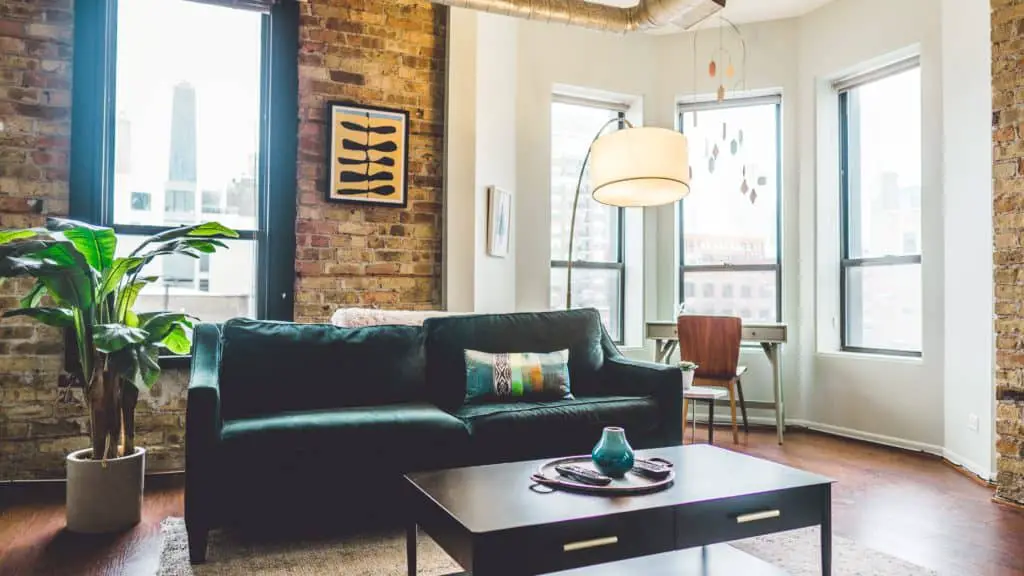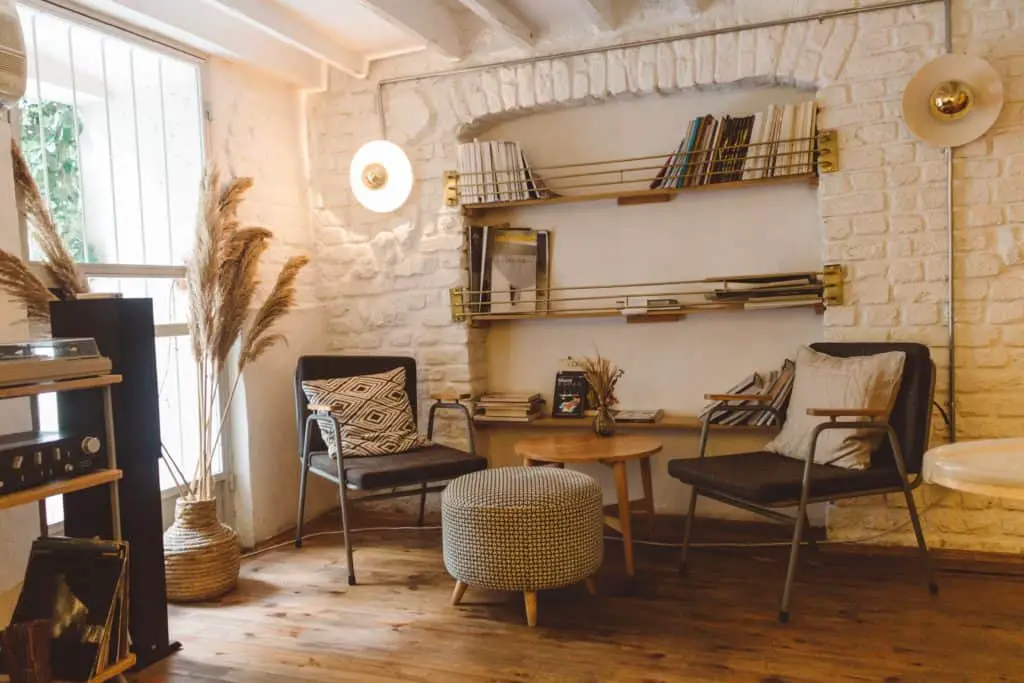
So you think you are ready to move into your new place. You have the apartment picked out, the price is right, and it even has a balcony porch where you and your friends can hang out. Sweet!
But don’t overlook the crucial things that are going to affect the quality of life you end up having at your new apartment. Just a bit of caring and knowledge at the beginning of your move-in can save you a TON of hassle in the long run, but also help ensure that you are getting everything you are expecting and paying for.
Moving Soon? Get quality cardboard moving boxes for less! – Click Here – Fast and Free Shipping!Here is a list of the things you need to check before you start moving in:
1. Make Sure Everything Works
This may seem quick common-sensical, but you would be surprised the percentage of people that don’t do this. During the walkthrough, that is what they do, literally walk through the place. Whether it is out of a fear of being disrespectful or discourteous to the manager or landlord when they are walking you through, there is a huge percentage of people who don’t do the due diligence that needs to be done before signing the lease.
Turn all the lights on. Run the water out of the faucets. Make sure the stove and microwave turns on and gets hot. Open all the cupboards and doors, ensuring they work properly and there isn’t any major damage. See if there is a garbage disposal or trash compactor that is working. Start and stop a dishwasher cycle.
And yes, even check the outlets! Your phone charger will work as a good proxy for this, and you can even have one of your kids or your significant other by doing this while you are doing the rest of the walkthrough with the manager.
Don’t worry about what the manager is thinking. He sees people do this every day. In fact, the manager is going to be more assured that a diligent person is going through this extra step because it tells them that you are a deliberate person. Regardless of how it “feels”, it is going to earn you respect in the eyes of the manager.
2. Knock On The Neighbor’s Door
Ask if you can knock on one or more of the neighbor’s doors when they take you up for an inspection. This allows you to see and briefly meet the people you could potentially be spending the next couple of years in close proximity to.
This gives you a two-fold benefit. First, it gives you a heads up of what type of people they are. Is there a bunch of noise coming from inside the apartment? Does the apartment look clean and smell nice when they crack the door? Or do they have 9 kids running all over the place and it looks like a disaster? A quick knock on the door to say “Hi” can give you a ton of information about what type of people are currently leasing at the complex.
The second benefit it gives you is you can ask how they like living at the complex, what their experiences have been, good or bad, and what they think of the people who previously occupied your apartment and why they chose to leave. People love talking about themselves, and virtually everyone would be willing to ask a couple of quick questions to a stranger who is about to move in across the hall. After all, they get to meet you as well!
3. Inspect The Lease
This is the document that is going to determine what you get out of your rental experience. Before signing anything, you need to go through the lease with a fine-toothed comb, making sure all the provisions that were advertised are, in fact, included in the lease and that there are no surprises, like additional move-in costs that weren’t originally posted.
Also, what are your rights as a tenant? Can you get out of your lease early if an emergency arises? And what are the expectation for noise and guests during after-hours?
Who is expected to make the repairs and who pays for them? Check out this Repair Article for more info… What is all included in the apartment? Is it completely furnished by the complex, or am I expected to bring everything of my own into the place?
Reading through the entire document is an absolute MUST. This is how you as a tenant can ensure you are getting everything you are paying for, and the method by which you can negotiate or protect yourself in the lease should something go wrong.
4. Drive To The Apartment Complex At Night
Everything looks different at night, that’s not just a saying. And a sprawling complex that looks bright and cheery in the day can take a sudden turn to the scary side once the sun goes down.
Check and see how the complex is lighted after dark. Are there safety lights in the common area that work and are on a timer? Are there plenty of lights in the parking lot and outside your building? Even how are the hallways or walkways lit when it is dark?
Are there groups of questionable people milling around or is it as peaceful and tranquil at night as it was when you saw it in the daytime?
Feeling safe and secure is a HUGE deal for most people. The last thing a renter wants is to feel unsafe in their own apartment, or when they have to go from their car across the parking lot to their building.
Make sure your apartment complex feels as comfortable to you at night as it felt to you in the day.

5. Make Sure The Apartment Is Clean And Pest-Free
This again might seem like a no-brainer, but it is very important. As we have covered in other articles, not everyone is necessarily as clean as you are. And even if the complex did do a good job cleaning, did they clean deep enough?
If the last person who rented your unit was absolutely filthy, the filth may be removed, but the fleas and rodents and other critters could still be lurking around.
While completely disgusting if you find something, WAY better to find something before you sign your lease, than realize 2 months later that you have been living with pests this entire time.
Ask the manager what was done to the apartment to get it ready for you to move in. Were the carpets cleaned? Were the walls painted? How deep did they scrub the bathroom and kitchen? What condition was the refrigerator in when the last person left? Are there any smells of any sort in the apartment? That could be due to mold and mildew. Check the bathrooms and the walls for any black or green substance. Noting it before you start renting is going to make it much easier for you to get it taken care of or maybe just move to another unit.
6. Check Your Phone’s Coverage and Wifi
In the days of constant connectivity, we rarely think about our cell phone signal anymore. However, this can actually become a real issue. Many apartment complexes are made out of poured concrete. Depending upon where your unit is located in relation to the cell phone tower, the signal may have to go through layer after layer of concrete to get to you, which is going to greatly diminish the signal.
While there isn’t much you can do about increasing your cell phone signal, how much reception you get from it could be a deciding factor on whether or not you rent the place.
If the complex offers Wifi, test out the signal strength. Apartments are set up similar to hotels, and if there are not enough extenders or repeaters, you could run into the same problem with the Wifi signal, having to go through multiple units to get to yours.
7. Check The Water Pressure
While kind of a funny topic to touch on, this can mean the difference of a thousand miserable mornings, and the ability for your body to be graced by the presence of a million drops of hot water a second!
Seriously, test the water pressure out. If it is trickling out like a small spring in the desert, you need to address that with the landlord. You are the one paying for the water, you may as well pay for it at the pressure you want. Does it have to do with the showerhead or is it something else entirely.
Best Shower Head for Low Water Pressure – The Original Fire Hydrant Spa Plaza Massager Shower Head (Amazon Link)
And water pressure doesn’t just mean a disappointing shower experience, it can be a serious detriment to dishwashing and other things as well.
It is a simple thing to turn on the shower and faucets and see how much pressure there is coming out. We all know how much water pressure is worth when it means the difference between a cold shower on a hot day and a hot shower on a cold day.
8. Get The Number For Maintenance
When something breaks larger than a 60-watt lightbulb, you are going to need to know who to call to put a request in to get it fixed. Is there a person on staff 24 hours a day to handle any issue that comes your way, or do you need to put a physical paper request to get your drain unclogged?
Regardless of the situation, you need to know who to call when the situation arises.
9. Do a Safety Check
Is your apartment safe? Do all the smoke alarms and fire detectors work? Ask the manager when the last time the batteries were changed by the complex, usually, they are the ones responsible for changing out the batteries.
Does everything work satisfactory? Check each room for a smoke detector and see where they are located throughout the apartment. Press the “Test” button for each and every device in the apartment to ensure that you are being protected.
Carbon Monoxide and Radon Detectors? (Amazon Links) Make sure you ask about these as well. If they are not provided be sure to buy your own to keep you safe.
10. Inspect The Overall Security
For the same reason you want to see the apartment complex at night, you want to make sure that your apartment is secure. Do your doors close tightly? Are there deadbolts on the inside of your apartment door? How do the doors and gates work outside your apartment? Is it relatively easy to get in if someone wanted to, or is it fairly secure?
Having peace of mind when you are renting an apartment is worth quite a bit of value in price. Spending less for an apartment that has virtually no security isn’t worth nearly as much as a place that gives you the certainty that you are going to be safe both in and outside your apartment.
11. Take LOTS of Pictures
The culmination of performing all of these safety checks can be for not if you don’t have any way to prove them later in your lease term should push come to shove.
It is absolutely critical that you take pictures of any and everything when you move into the apartment. That way, the manager can’t come back and say, “Oh, it was 100% fine when we let you move in, you must have done that yourself, or caused that problem yourself.”
If you have pictures of every room of the apartment from the day you moved in and did the walk-through with him, there is going to be little he can do to fight you from his end.
The second way that taking a bunch of pictures helps you is during the move-out process you will inevitably have to do someday. The manager is going to come and walk through, looking for any potential damages that you have done during your stay that is outside the normal “wear and tear” of the apartment.
Having before and after pictures, pictures taken on the day you moved in and on the day you moved out, are going to be the evidence you show your manager when you ask for your deposit back.
Have these pictures just sitting on a folder on your phone or computer, so when the time comes, you can simply refer to them and have the photo state your case for you.
Loving your apartment means having a high quality of life while living in the apartment you chose. Use this list to go over the features of the apartment and make sure that you are getting everything you are expecting.
Also, some of these things are safety issues, and if you have kids or loved ones moving in with you, it is simply a responsible thing to do providing due diligence in making sure the apartment is safe and secure.
